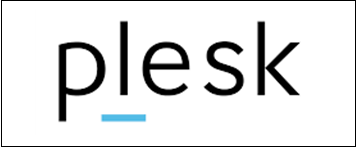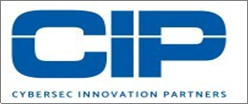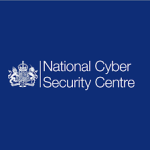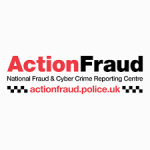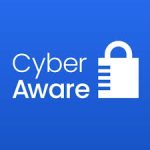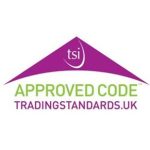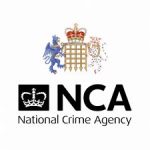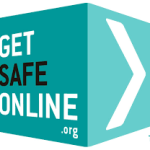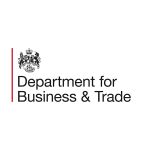The National Cyber Security Centre (NCSC) is the UK’s lead authority on cybersecurity, part of GCHQ. It provides expert guidance, threat alerts, and practical tools to help businesses of all sizes, including small and micro enterprises, protect themselves from digital threats. For small businesses with limited in-house IT expertise, the NCSC offers accessible, jargon-free resources tailored to real-world concerns—like phishing, ransomware, and data loss. Their “Small Business Guide” and accompanying actions checklist help SMEs quickly understand and implement basic protections. They also provide free services like the Early Warning tool, Cyber Action Plan generator, and guidance on supply chain security. Learn More/…
The Information Commissioner’s Office (ICO) is the UK’s independent regulator for data protection and privacy rights. It enforces the UK GDPR and Data Protection Act, and provides guidance on how businesses should collect, store, and use personal data lawfully and responsibly. For small businesses, the ICO is an essential resource, offering practical toolkits, templates, and self-assessment checklists to help ensure compliance. SMEs can also access advice via their helpline or use the ICO’s data protection fee checker to determine their legal obligations. The ICO recognises that small businesses may not have dedicated compliance officers, so it has designed its resources to be understandable and actionable. Learn More/…
Action Fraud is the UK’s national reporting centre for fraud and cybercrime. Operated by the City of London Police, it serves as the central point for reporting scams, financial fraud, business impersonation, and cyber-attacks. Small businesses face increasing risks from invoice fraud, ransomware, and business email compromise, and Action Fraud provides both a reporting mechanism and educational tools to counter these threats. Their Business Fraud Centre offers fraud prevention tips tailored to SMEs, helping owners recognise common scams and respond effectively. Businesses that fall victim to fraud can submit a report online or via phone, and their case is passed to the National Fraud Intelligence Bureau for assessment. Learn More/…
Cyber Aware is a UK government-backed campaign designed to raise public and business awareness of cybersecurity best practices. Aimed especially at individuals and small organisations, it focuses on six key actions businesses can take to protect themselves, such as using strong passwords, enabling 2-step verification, and keeping software updated. Cyber Aware provides simple, impactful advice to improve digital hygiene, with a focus on things that small business owners can implement without technical support. Their website includes checklists, videos, and a “Cyber Action Plan” tool that generates a personalised set of recommendations. Cyber Aware works in partnership with NCSC and major UK organisations. Learn More/…
Companies House is the UK’s official registrar of companies, responsible for incorporating and dissolving limited companies, maintaining public records, and ensuring corporate transparency. While primarily known for business registration, Companies House plays a growing role in fraud prevention and data accuracy—issues critical to small business trust and reputation. Small firms can use Companies House to verify other businesses, detect suspicious changes to their own company records, and protect their identity through services like the PROOF scheme (to prevent unauthorised filings). In recent years, Companies House has enhanced its digital services to support easier compliance. Learn More/…
The Financial Conduct Authority (FCA) is the UK’s independent regulator for financial services firms and markets. While traditionally focused on banks, insurers, and large institutions, the FCA plays a crucial role in ensuring that small businesses—particularly those offering financial products or using third-party financial platforms—operate in a secure and fair environment. For SMEs in sectors like fintech, lending, accountancy, or investment, FCA guidance is essential for compliance and risk mitigation. The FCA also protects small business customers by enforcing rules around fair treatment, transparency, and protection from financial misconduct. Learn More/…
HMRC is the UK’s tax authority and a critical interface for all small businesses handling payroll, VAT, self-assessment, or corporation tax. Beyond its core fiscal responsibilities, HMRC plays a frontline role in fraud prevention, cybercrime response, and digital security education. Many small businesses are targeted by scams impersonating HMRC—via email, text, and phone—which makes HMRC’s real-time scam alerts and reporting tools especially valuable. The department publishes regular updates to help SMEs recognise fraudulent communications and avoid falling victim to phishing attacks. HMRC also provides secure digital services for tax filing and account management. Learn More/…
Trading Standards services are delivered by local authorities across the UK, but collectively they serve as a national regulatory network protecting businesses and consumers from unfair practices, scams, and dangerous goods. For small businesses, Trading Standards offers guidance on legal compliance, product safety, advertising regulations, and preventing consumer fraud. SMEs are often the targets of rogue traders and scam suppliers, and Trading Standards helps protect them by investigating complaints and providing prevention advice. Many local Trading Standards teams also offer primary authority partnerships—giving small firms direct access to tailored regulatory advice. Resources like “Business Companion,” Learn More/…
The National Crime Agency (NCA) is the UK’s top-level law enforcement agency tackling serious and organised crime, including cybercrime, fraud, and economic crime. Of particular interest to small businesses is the work of the NCA’s National Cyber Crime Unit (NCCU), which coordinates national and international responses to cyber threats. The NCA partners with regional police cyber units to help protect UK businesses from ransomware, online extortion, and data theft. Small firms can benefit from NCA resources such as threat briefings, security alerts, and case studies detailing real-world cyber-attacks. The NCA also supports law enforcement efforts to disrupt criminal marketplaces and shut down fraud operations that target SMEs. Learn More/…
Get Safe Online is a government-backed public-private partnership offering expert advice on online safety and cybersecurity. Aimed at both individuals and businesses, its resources are especially accessible for small enterprises with limited in-house IT capacity. The “Business” section of its website offers free guidance on cyber hygiene, data protection, online fraud, and safe digital practices, including advice tailored to remote working and online payments. Get Safe Online runs awareness campaigns, publishes checklists, and delivers local seminars and webinars to promote cyber resilience. They also work with police forces, local councils, and international partners to provide consistent, trustworthy information to business communities. Learn More/…
UK Finance is the collective voice of the UK’s banking and finance industry, representing over 300 firms including retail banks, payment providers, and fintech companies. It plays a key role in helping small businesses stay protected against fraud and financial crime. Through its Take Five to Stop Fraud campaign, UK Finance provides simple, impactful advice on recognising and avoiding scams—particularly those involving payments, invoices, impersonation, and business email compromise. It also produces in-depth reports on fraud trends and collaborates with law enforcement, telecoms, and tech providers to disrupt fraud networks. For small firms dealing with digital payments and online banking. Learn More/…
The Department for Business and Trade (DBT) leads UK government policy on enterprise growth, innovation, and international trade. For small businesses, DBT is a central source of support for navigating regulation, funding, exporting, and digital transformation. Through schemes like the Help to Grow: Digital and Export Support Service, DBT provides advice and financial backing for adopting digital tools and expanding safely online. The department also issues guidance on resilience, cybersecurity, intellectual property protection, and dealing with cybercrime—areas increasingly vital for small businesses operating in digital marketplaces. DBT works closely with other government bodies. Learn More/…
The British Business Bank is the UK government’s economic development bank, established to make finance markets work better for smaller businesses. It supports SMEs by increasing access to loans, equity, and start-up capital through partnerships with banks, alternative lenders, and investment funds. Beyond funding, the BBB is also a trusted source of fraud awareness and cybersecurity education for small firms. Through its Finance Hub, it provides practical guides on avoiding financial scams, managing risk, and choosing secure fintech products. It regularly highlights fraud risks facing small businesses, such as clone firms or investment scams, and promotes trusted providers to help reduce exposure. Learn More/…
Police CyberAlarm is a free cybersecurity monitoring tool developed by UK policing to help small and medium-sized organisations understand and improve their cyber resilience. Once installed, it acts like a “CCTV camera” for digital traffic—monitoring and reporting suspicious activity to help identify threats before they become breaches. Crucially, it does not access personal data or content, only metadata such as IP traffic and connection attempts. For small businesses with limited IT security teams, Police CyberAlarm provides real-time alerts, regular threat reports, and actionable insights that can support incident prevention and response. Learn More/…
UK Small Business Owner? Join SMECyber Free Now! & Access the SME Cyber Forum – Read, Learn, Engage, Share …
The Latest SME Cybersecurity News, Threat Intelligence & Analysis, Timely Scam Alerts, Best-practice Compliance, Mitigation & Resources specifically curated for UK Based SMEs in a Single Weekly Email direct to your Inbox or Smart Device together with Unrestricted Free Access to our entire SME Cyber Knowledge & Tutorial Library.





